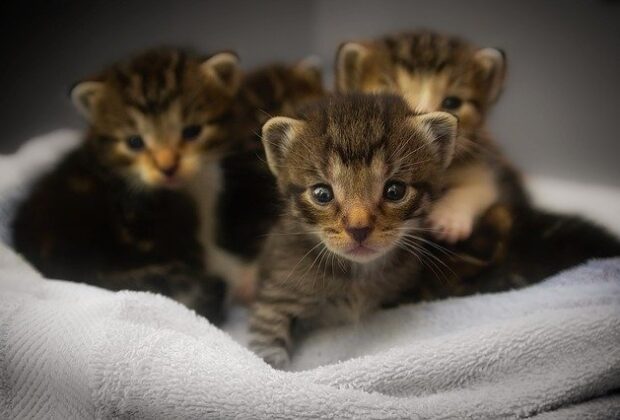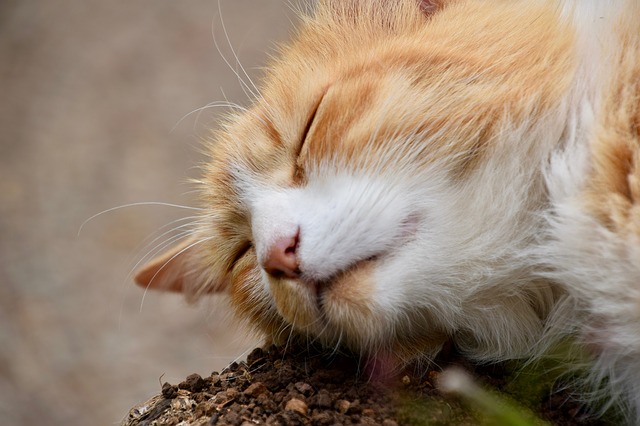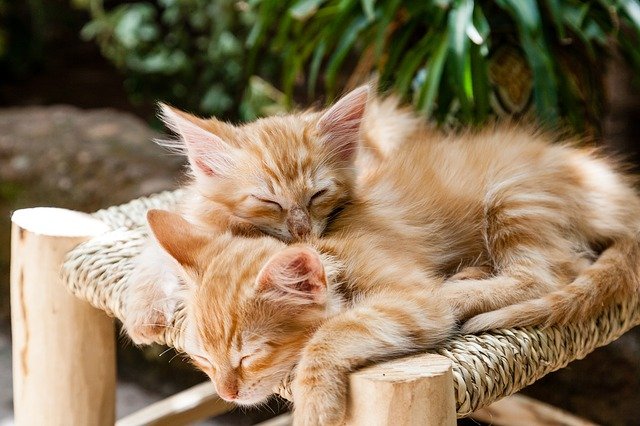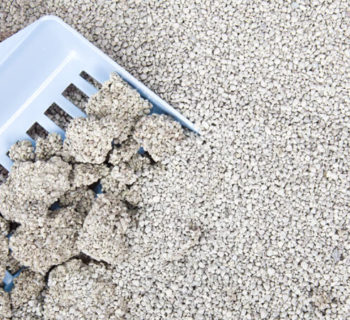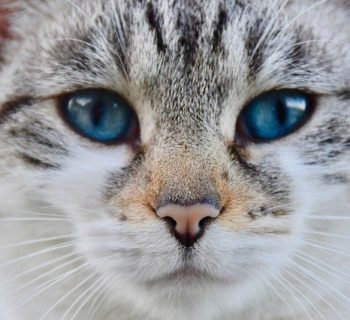While a mother cat can sometimes refuse to care for her kittens or a particular kitten, you still want to be sure that this is indeed the case. For one, kittens can be left alone by their mothers for more than a few hours, but the mother cat is usually nearby when this happens.
However, it can be hard to be sure, especially if there is no sign of the mother after a few hours. Therefore, in this article, I’ll discuss how to tell if a mother cat has abandoned her kittens, the reason for this behavior, and what to do in this situation.
Table of Contents
Why a Cat May Reject Her Kitten
Feline mothers may reject kittens they believe do not stand a chance of survival. This is usually done to increase the survival chances of the remaining kittens. Some of the reasons that could influence this decision include a congenital disability, medical issues, or an accident that leaves the kitten weakened.
Another reason a feline may reject a kitten (or kittens) is to adequately nurse the majority of them if she has many in her litter. The mother cat may also be too ill or lack proper nutrition to care for them, causing her to reject them.
Signs of a Cat Rejecting a Kitten
The following are some ways to tell if the mother has abandoned a kitten for any reason mentioned above.
After Birth Behavior
This is a way to detect abandonment in house cats and some familiar feral cats. Cat mothers generally begin nursing their kittens after birth and at hourly or two-hour intervals. The milk produced during this period contains colostrum, a substance rich in antibodies that nourish and build the newborn kittens' immunity.
Because cat mothers will ensure that their kittens are fed this highly beneficial milk, it should draw your attention if you notice she is not providing for or allowing some feed. This behavior is a common sign of rejection. In some cases, the cat moves the said kitten to a different location away from the rest of the kittens.
Crying or Mewling
Kittens that have been rejected will cry or mew. They do this continuously to call for attention or as a response to the mother’s biting or hissing.
Signs of Irritation and Distress
Cat mothers are naturally inclined to snuggle their kittens to keep them warm. They also lick to keep them clean. If your feline avoids doing any of this for a particular kitten or the entire litter, she may be distressed or irritated, hence, the reason she is rejecting her kittens.
Undersized Kittens
In the first few weeks of their lives, felines grow daily in size. However, if you notice that your kitten does not seem to be gaining weight or showing any signs of growth, it may be because the mother cat has rejected it.
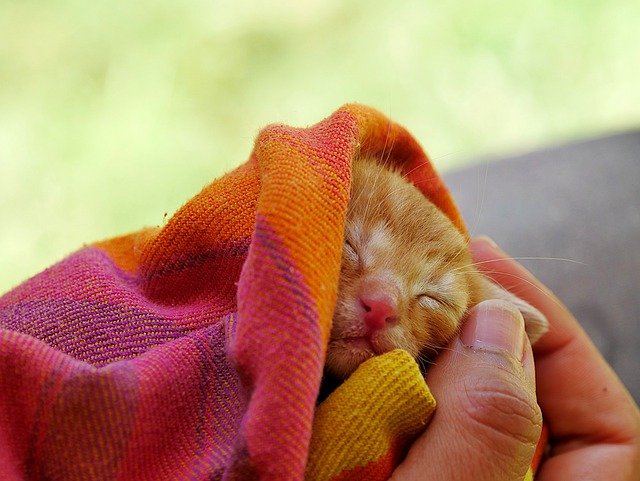
Caring for an Abandoned Kitten
If you decide to take on the responsibility of keeping and caring for the abandoned kitten, you may find the following care tips helpful.
General Care and Bottle Feeding Tips and Steps
Before you transfer the kitten to your home, first prepare the items you need for the bottle feeding.
Next, to keep the kittens warm, wrap the carrier in an old small/baby blanket but ensure you leave some space or holes to let in some air and prevent suffocation.
Kittens don’t do well when cold. So, you want to check that they are warm and, if not, warm them up gradually before feeding. To tell if a kitten is cold, touch the pad of its feet, ears, or mouth. If any or all of these feel cold, it is likely because the kitten’s temperature is lower than average.
Very low temperatures can be life-threatening to kittens and should be taken care of immediately. You can warm a kitten up by wrapping it in a thick small blanket or towel, holding it close or rubbing gently with your warmed palms.
Milk Formulas for Kittens
When it comes to feeding newborn kittens, you want to opt for the powdered kitten milk replacement formulas instead of the canned ones. There are several powdered formulas available in pet shops, both online and offline. High-quality powdered formulas help to prevent diarrhea, are nutrient-packed, and are enjoyed by kittens.
On feeding, unless you are sure of the kitten’s age, you should read the blog post on how to determine the ages of kittens. This would help you care and provide for it appropriately.
Feeding, Stimulation and Elimination
Apart from being unable to eat and digest solid food, newborn kittens cannot eliminate waste (urination and defecation) without help. So, after each around-the-clock feeding, you should stimulate them to help them pass waste. Every three hours is best (feeding and elimination).
Kittens should also not be overfed, or their meals skipped as this is known to cause problems like diarrhea and the accompanying dehydration. While it would be stressful for you to deal with the cleanup and other care requirements of a kitten with diarrhea, it can be dangerous to the young kitten. It would be best if you had a vet check the kitten at the onset of diarrhea and avoid all possible triggers when you can.
How to Tell if a Cat Has Rejected Her Kittens: Conclusion
Even though feline mothers are not ones to quickly abandon their kittens, it can happen. However, abandonment should not be confused with other factors that could cause a cat to leave her litter for some time. I discussed some of the possible reasons a cat may be “abandoned” and what you can do when confident that the mother cat really did abandon the kitten.
Finally, I must add here that caution is required when handling an abandoned kitten. For one, even though prolonged time away from the litter may signify abandonment, you still want to be sure the cat mother is nowhere near to prevent attacks.
Another reason for caution is to prevent the spread of disease to other pets or humans in the home on contact. Do your due diligence and have all of the boxes ticked before bringing home the kitten. And we must mention here that kitten mothers may refuse to feed the kitten after the four-week mark. This is completely normal as they are usually weaned from milk to solid food around the 4th to 8th week. Again, check the article on telling the age of a kitten if you are unsure of the abandoned kitten’s age, so you’re able to feed and care for it properly.
About the Author
Kirsten Heggarty
Kirsten created The Pet Handbook with the aim of sharing her knowledge about pets, pet food, healthy habits, and more. All of her advice is based on years of her own experience with her pets, and feedback that she has received from grateful readers about her tips. If you want to know more please read the About Me page.

